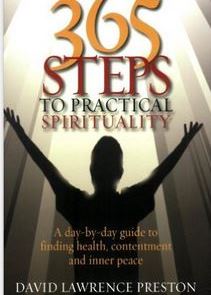Practise forgiveness
Judging, blaming, bearing grudges and forgiveness are closely related. Before you need to forgive you must have judged, blamed and felt a measure of fear. Otherwise there would be nothing to forgive.
It is not for you to decide whether the recipient deserves to be forgiven is not. Forgiveness is not about condoning wrongdoing, but is part of the process of righting wrongs and putting something better in their place.
Five irresistible reasons to forgive
- When we forgive, we free ourselves from anger, bitterness and resentment and create inner peace. Our bodies feel less tense. The incident becomes merely a memory, no longer charged with emotion.
- Everything we give out returns to us. When we forgive, the bitterness evaporates and we avoid being on the end of others’ bitterness in future.
- We take responsibility for our lives rather than expecting something outside our control to happen or someone else to change.
- We forgive not so much for the other person (they may know that we’ve forgiven them). We do it for ourselves. Who benefits the most when you forgive – YOU! There’s a wise old saying: Acid harms only the vessel that contains it.
- Forgiveness brings our awareness to the present. We let go of the past, stop plotting for the future, let go and move on.
Forgive yourself too
Guilt is one of most disempowering emotions and one of the most common. Many people fret over things they can do little about, and some even feel guilty knowing they’ve done nothing wrong.
Guilt is a futile emotion because it is rooted in the past which, of course, can’t be changed. All we can do is change our thoughts and feelings about it.
What about you? You deserve forgiveness as much as anyone else. What do you need to be forgiven for? You have made mistakes – we all have. Instead of feeling guilty, look for the lessons and don’t make the same mistakes again.
Do you find it hard to forgive?
Do you ever feel you’re not ready to forgive? You want to, you know it makes sense and yet those blaming thoughts keep coming.
If so, start by wanting to, then intending to forgive. The willingness to forgive is a major step.
- Examine your beliefs about forgiveness. Do you believe that you have to get even for every wrong done to you? Do you believe that forgiveness is a sign of weakness? Do these beliefs serve you well?
- Eliminate unforgiving thoughts. Sow thoughts of love, empathy and forgiveness. Affirm – Perfect order is now established in my mind. I am at peace.
- Picture the person who you wish to forgive. Surround this image in white light and affirm, ‘From this moment on, I send you love and light.’ ‘See’ the two of you as connected.
- Extend love, generosity and compassion to them and avoid petty acts of revenge.
©David Lawrence Preston 6.6.2017
Follow me on Facebook and Twitter @David_L_Preston
How to Books, 2007


